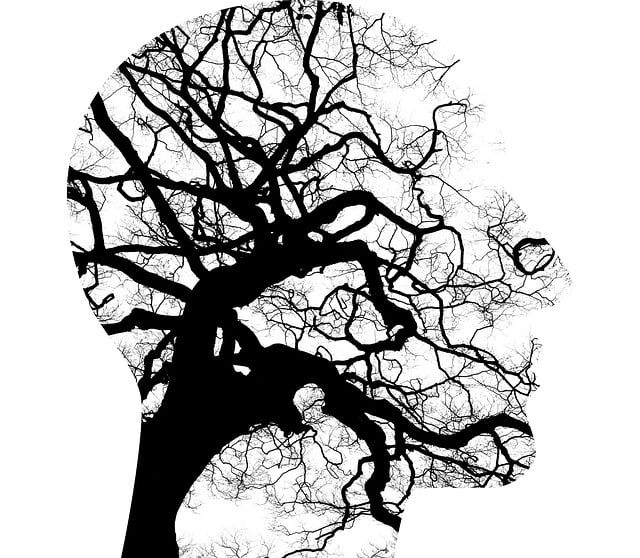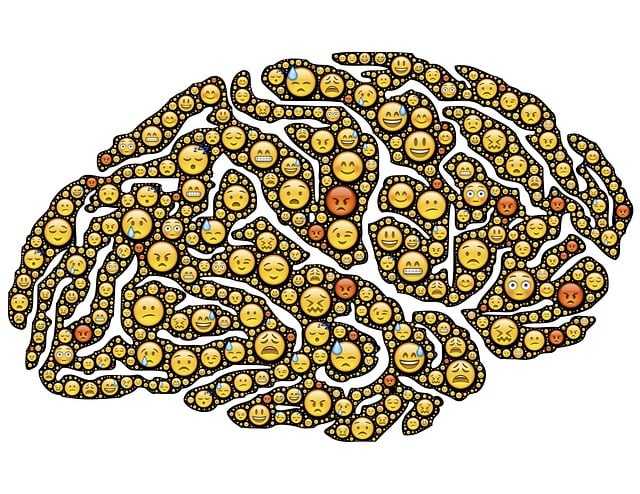Lakewood Mindfulness Therapy offers evidence-based mental wellness coaching that prioritizes self-awareness and mindfulness for personalized support. Their programs integrate techniques like CBT, meditation, and positive psychology to help individuals manage stress, anxiety, and challenges, fostering emotional intelligence and improved mental well-being. They emphasize cultural sensitivity, burnout prevention for healthcare providers, and effective curricula through journaling exercises, podcasts, and tailored coaching sessions. Evaluating success with quantitative and qualitative methods ensures continuous improvement, empowering clients with self-care tools and coping strategies.
Mental wellness coaching has emerged as a vital support system in modern times, addressing the growing need for holistic well-being. This article delves into the development of effective coaching programs, highlighting key strategies and practices. We explore the transformative power of Lakewood Mindfulness Therapy in shaping comprehensive curricula. From understanding the definition and importance of mental wellness coaching to incorporating evidence-based practices and measuring success, this guide offers insights for professionals aiming to enhance the effectiveness of their programs.
- Understanding Mental Wellness Coaching: Definition and Importance in Modern Times
- The Role of Lakewood Mindfulness Therapy in Shaping Effective Coaching Programs
- Key Components for Designing Comprehensive Mental Wellness Coaching Curricula
- Incorporating Evidence-Based Practices to Enhance Coaching Effectiveness
- Measuring Success: Evaluation Methods for Assessing Mental Wellness Coaching Programs
Understanding Mental Wellness Coaching: Definition and Importance in Modern Times

Mental wellness coaching is a supportive process that empowers individuals to enhance their mental well-being and cultivate resilience in today’s fast-paced world. It involves guiding people through various aspects of life, helping them navigate stress, anxiety, or challenges, and fostering positive mindset shifts. At its core, this approach focuses on developing coping strategies, self-awareness, and personal growth, ultimately leading to improved overall mental wellness.
In modern times, where mental health concerns are increasingly prevalent, Lakewood Mindfulness Therapy offers a valuable service through coaching programs. These programs cater to diverse needs, from stress management and social skills training to risk management planning for mental health professionals. By integrating evidence-based techniques with mindfulness practices, coaches create safe spaces for clients to explore their thoughts and emotions, fostering self-discovery and emotional intelligence.
The Role of Lakewood Mindfulness Therapy in Shaping Effective Coaching Programs

Lakewood Mindfulness Therapy has emerged as a transformative force in shaping effective mental wellness coaching programs. This therapeutic approach emphasizes self-awareness and present-moment awareness, tools that are incredibly valuable for coaches looking to support their clients’ holistic well-being. By integrating principles from mindfulness practices, coaching sessions become more interactive and personalized, fostering a deeper connection between coach and client. This individualized attention is crucial in addressing the diverse needs of modern individuals seeking mental wellness solutions.
Moreover, Lakewood Mindfulness Therapy encourages cultural sensitivity in mental healthcare practice, a key aspect when developing inclusive and effective coaching programs. Recognizing the impact of cultural backgrounds on an individual’s mental health journey, this therapy promotes an understanding that goes beyond generic advice. It equips coaches with skills to navigate diverse perspectives, ensuring that every client receives tailored support. This approach not only enhances the effectiveness of coaching but also builds trust between the coach and the client, which is essential for successful mental wellness coaching programs development.
Key Components for Designing Comprehensive Mental Wellness Coaching Curricula

When designing comprehensive mental wellness coaching curricula, several key components are essential to ensure effectiveness. Firstly, Lakewood Mindfulness Therapy techniques should be integrated into daily sessions, teaching clients practical tools for stress reduction and emotional regulation. This involves mindfulness meditation, breathing exercises, and other sensory-based practices that promote a sense of calm and present-moment awareness.
Secondly, Mental Wellness Journaling Exercise Guidance plays a pivotal role in fostering self-reflection and introspection. Encouraging clients to document their thoughts, feelings, and experiences can help them identify patterns, track progress, and develop personal insights. Additionally, incorporating Mental Wellness Podcast Series Production into the curriculum allows for engaging content that addresses common mental health challenges and provides valuable guidance from experts. Furthermore, including Burnout Prevention Strategies for Healthcare Providers is crucial given the high-stress nature of healthcare work, ensuring coaches are equipped to support professionals in maintaining their own well-being while caring for others.
Incorporating Evidence-Based Practices to Enhance Coaching Effectiveness

Incorporating evidence-based practices is a cornerstone in enhancing the effectiveness of mental wellness coaching programs, especially when focusing on holistic support like those offered by Lakewood Mindfulness Therapy. Techniques such as cognitive-behavioral therapy (CBT), mindfulness meditation, and positive psychology interventions have been rigorously studied and proven to significantly improve mental health outcomes. Coaches can leverage these practices to guide clients through challenging emotions, reframe negative thought patterns, and cultivate coping strategies tailored to their unique needs.
By integrating evidence-based methods, coaches facilitate powerful emotional healing processes, support mental illness stigma reduction efforts, and empower individuals with effective self-care tools. For instance, Mental Wellness Journaling Exercises can be a valuable guidance in between coaching sessions, allowing clients to track progress, identify triggers, and express their feelings. This reflective practice deepens the therapeutic process, making it more impactful and sustainable.
Measuring Success: Evaluation Methods for Assessing Mental Wellness Coaching Programs

Evaluating the success of mental wellness coaching programs is paramount to ensuring their effectiveness and making evidence-based improvements. At Lakewood Mindfulness Therapy, we employ a multi-faceted approach to assessment that goes beyond simple client satisfaction surveys. This involves utilizing validated questionnaires tailored to measure changes in symptoms associated with anxiety, depression, and stress. By comparing pre-and post-program data, we can quantify the impact of coaching on clients’ mental health.
Additionally, our evaluation methods include qualitative feedback through interviews and focus groups, allowing for a deeper understanding of participants’ experiences. This comprehensive strategy enables us to identify areas of strength within our programs as well as aspects that may require refinement, ultimately fostering continuous improvement in supporting individuals’ self-care routine development for better mental health and coping skills development. Effective stress management is at the core of our coaching initiatives.
Mental wellness coaching programs, enriched by evidence-based practices and inspired by methodologies like Lakewood Mindfulness Therapy, are transforming lives. By incorporating comprehensive curricula that address key mental health aspects, these programs offer effective support for individuals seeking improved well-being. Utilizing robust evaluation methods ensures success and allows for continuous improvement in meeting the diverse needs of participants. This evolving field holds immense potential to foster thriving communities and enhance overall mental health in modern times.













